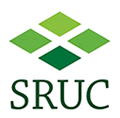Osteoarthritis is estimated to affect 20% of dogs, and additionally other joint and neurological conditions, acute challenges and temporary restrictions impact our canine patients. Management practices are broader than medical or surgical treatment, including nutritional management, activity modification and adapting the environment/daily routines. Understanding the changes in mobility enables decisions about patient management to be taken timeously, supporting slower deterioration and quality of life, or recovery where appropriate. Mobility assessment in dogs is currently limited to gait analysis, pain scoring or instruments which evaluate negative impact on normal activities due to disease. The purpose of gait analysis is primarily diagnostic, commonly for osteoarthritis (OA). Existing systems are largely limited to assessing gait, meaning that the impact of restricted movement on other daily activities, such as eating, toileting and sleeping, is less well understood.
The aim of the project is to develop a canine mobility scoring system/scale which can be used by veterinary professionals (principally veterinary nurses - VNs) to assess mobility/movements in a range of conditions/contexts (acute and chronic or temporary). The purpose of the scale would be to provide information on the patient’s ability to perform normal movements, understand the impact therefore on their daily activities, and assess changes in mobility/movement in response to interventions/treatments or disease/condition progression. The application of this scale would be by VNs in the hospital environment to assess their patient’s condition and needs, and potentially as a tool for owners to provide information for chronic conditions management (OA, chronic heart disease, diabetes), pain and weight management clinics etc.
The aim of this project is to involve stakeholders in the development of a mobility scoring system, and then to test the validity of the system in acute and chronic disease situations.
Objective 1: Survey/focus groups with dog owners, VNs and veterinary surgeons to establish the range of normal activities which require a degree of mobility. Results will be analysed to establish commonality and agreement on the range of mobilities expected in dogs, and identify terms that describe the range of ability from normal, impaired and absent/unable to carry out.
Objective 2. Based on Objective 1, create scales for the identified behavioural changes, that characterise the range of mobility variables. This will be used to develop a clinical metrology instrument.
Objective 3. Validate the scale. The validation exercise will use three groups of subjects; those with no identifiable mobility challenges, those with a known chronic condition (e.g. OA), and those with an acute, temporary condition (e.g. limb fracture). Clinical assessments will be done to characterise the presence and severity of disease. Additionally, accelerometers will be attached to 3 or 4 points on each subject (head/neck, fore and/or hind limb, tailhead). Data gathered to establish the range of movements during daily activities, and the degree to which these activities are limited in affected subjects. The clinical and accelerometer data will be used to validate the mobility scoring system
Application Process:
Please visit this page for full application instructions http://www.eastscotbiodtp.ac.uk/how-apply-0
1) Download and complete the Equality, Diversity and Inclusion survey.
2) Download and complete the EASTBIO Application Form.
3) Submit both to SRUC, [Email Address Removed].
Completed applications must include the following documents:
- Completed EASTBIO application form
- 2 References (to be completed on the EASTBIO Reference Form, also found on the EASTBIO website)
- Academic Qualifications
- Equality, Diversity and Inclusion survey
Unfortunately due to workload constraints, we cannot consider incomplete applications. Please make sure your application is complete by the 16th December 2021. Please ask your referees to submit your references directly to [Email Address Removed].
We anticipate that our first set of interviews will be held 7th – 11th February 2022 with awards made from 18 February.

 Continue with Facebook
Continue with Facebook



